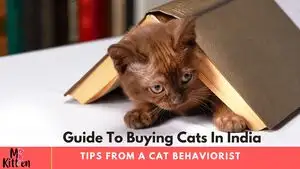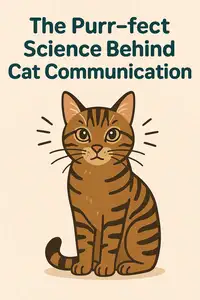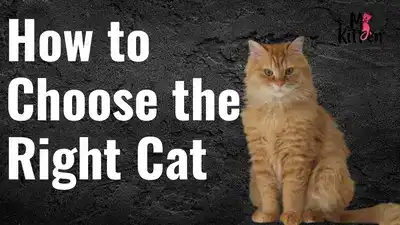Why Do Cats Meow? Understanding Feline Vocalizations
Decoding Your Cat's Meows: Understanding the Causes
Have you ever stopped to think about the constant chatter of your feline friend? What are they trying to tell you when they vocalize their thoughts and feelings?
Feline vocalizations are a complex language that can be both fascinating and puzzling. From soft purrs to loud meows, cats communicate in various ways to convey their needs, wants, and emotions.
Understanding cat behavior is key to deciphering their vocalizations. By exploring the reasons behind their meows, we can gain insight into their behavior and strengthen our bond with them. In this article, we’ll delve into 15 reasons behind your cat’s meowing, helping you better understand their language.
The Language of Meows: What Your Cat Is Trying to Tell You
The Purr-fect Science Behind Cat Communication
Delving into the mysterious world of cat vocalizations reveals a complex communication system that is both fascinating and essential to understanding our feline friends. Cats use a variety of sounds to convey their needs and emotions, making vocalizations a crucial aspect of their interaction with humans and other animals.
Research into cat communication has shown that meowing cats are capable of producing a range of vocalizations, each with its own specific meaning. From the plaintive meows that signal hunger or attention-seeking to the hisses and growls that warn of fear or aggression, cats have a sophisticated language that is worth understanding.
By paying attention to the different types of cat vocalizations, owners can better understand their pets’ needs, strengthening their bond and improving their relationship. Whether it’s a demand for food, a request for affection, or a warning sign of distress, the meows and other sounds made by cats are an essential part of cat communication.

The only thumb rule is to be patient! Good Luck!
Know The Reasons Of Your Cat’s Meowing!!
We provide you with 10 different, extremely insightful reasons to guide you through this – 10 Reasons for Your Cat’s Mellow Meowing As per our highly learned and experienced professionals, there are many different reasons for a cat’s excessive meowing. The language may be a barrier but the emotions can never be. Do give this unique article a read to know why do cat’s meow.
We provide you with 10 different reasons to guide you through this:-
1) Health If you feel that your cat is meowing excessively, bring your cat to our veterinarian for getting a full diagnosis done, and get to know the correct reason for your cat being excessively vocal. The first obvious reason for your cat’s sudden meowing is that she might be hurt or there is an underlying health ailment that might be troubling your cat and she is trying to convey this to you.
2) Attention all cats are a great attention seeker, the unconditional meowing may mean that they want your hand over her, for you to pet or play with her. This shows your cat’s unconditional affection for you, and this kind of meowing is very much soft, and excessively sweet and mellow as your munchkin is trying to talk to you.
3) Threatened the most ferocious, and perhaps a little daunting for hooman parents is an angry or an agitated cat. Cats might often erupt into screaming, in case they ever feel threatened or intimidated. This is definitely not a very pleasant sight, your cat might be releasing pent up energy or she might be scared, with an excessively fluffy tail. During such time, a cat might become very violent and can probably pounce and attack another pet or even her own hooman, post which she would feel guilty, but she’s only an innocent animal, and we all get occasional bouts of anger.
4) For greeting her Hooman certain tender meows are just a cat’s way of saying ‘Hi’. Notice when you come home and your kitty meows or greets you when you see each other in the house, she might even run between your legs, and would even meow, asking you to pick her up.
5) When your kitty is hungry The one major reason of a cat’s meowing is when you forget to feed you kitty, you would ne able to distinguish that demanding meows of your fur ball. Also some cats, especially maine coons run around and after you, meowing the whole time in case her dinner gets late or if she’s really hungry and wants food.
6) Wish to go in and out of one room .This might be similar for most of the house animals whenever they wish to go out or come inside and also if they want you to open the door for their majesty, if the door is closed, because your queen cat might not really appreciate your privacy.
7) During Estrus During estrus in cats, a female kitty or your beloved cat might yelp and howl incessantly. The sound may get unbearable for you as your kitty would have a sudden irresistible urge to go out. This is primarily one of the major reasons for spaying and neutering your feline companion.
8) Stress Our professionals have identified that one of the reasons for a cat’s excessive meowing is when she is in stress. Try and pacify her, and also eliminate any such object or recognize and work upon the causes that might be bothering your kitty.
9) Anxiety Amongst the many other house pets, cats are one who get sudden anxiety. Excessive and persistent worrisome conduct along with fear of being left alone in the house for long periods of time might result in your cat having a faster heart rate, accompanied with rapid breathing, sweating, and feeling tired. These anxious meows are very different and very much understandable.
10) Aging The most noticeable sign to distinguish a senior cat is his loud meows and increased vocalization. This may be due to the cat’s increased age and other age-related symptoms that unfortunately leads to bone, muscle, and organ dysfunction. Such cats might have a diminished cognitive function, and they are absolutely not as robust as they were previously. Old cats hence have a different kind of quite distinguishable meow.
But besides these, there are several other eclectic causes for the excessive meowing of a cat, that as naive humans we might not be able to understand unless we know our kitty inside out. Also in case these meows of your companion kitty are new to you, and if it is getting prolonged for days, it is very much advisable to contact our cat behaviorist at MyKitten for getting an in-depth insight of your kitty’s sudden drastic demeanor. It is extremely important to diagnose the underlying cause as your cat might possibly have some serious health problem that must be addressed in time.

The only thumb rule is to be patient! Good Luck!
15 Reasons Why Do Cats Meow
The meows of a cat are not just random sounds; they are a language that conveys various needs and emotions. Cats meow to communicate with their human caregivers and other animals, and understanding these vocalizations can help strengthen the bond between a cat and its owner.
1. The Food Bowl Blues
Cats often meow when they’re hungry or want a treat. This could be due to an empty food bowl or a desire for a specific type of food. Some cats are quite vocal about their dining preferences.
2. Doorway Dramas: Let Me In/Out
Cats meow to request entry to or exit from a room. This is a common behavior, especially if the door is closed or if they’re eager to explore or return to a familiar space.
3. Pet Me, Play With Me, Look at Me!
Many cats meow to solicit attention from their owners. This could be a request for petting, playing, or simply being acknowledged.
A dirty or unappealing litter box can cause a cat to meow. Cats may express dissatisfaction with the cleanliness or state of their litter box.
5. Something’s Not Right in My Kingdom
Cats may meow if they sense something unusual or are experiencing discomfort due to environmental changes.
6. Hello Human, I’ve Missed You!
Cats often greet their owners with a meow, especially after a period of separation. This is a way of acknowledging their human’s return.
7. I Love You (In Cat Language)
Meowing can be a way for cats to express affection. Some cats meow to communicate their love or contentment.
8. The Boredom Broadcast
Cats may meow if they’re feeling bored or lack stimulation. Providing toys or engaging activities can help alleviate this.
9. Anxiety Announcements
Anxiety or stress can cause cats to meow. Changes in the environment, new pets, or other factors can contribute to this behavior.
10. Back Off, This Is MY Territory
Cats may meow to assert their territorial dominance or warn other animals to stay away.
11. Ouch! I’m Hurting
Pain or discomfort can cause a cat to meow. Owners should be attentive to changes in vocalization that may indicate health issues.
12. Senior Moments: Elderly Cat Confusion
Older cats may meow more due to confusion or disorientation resulting from cognitive decline or sensory loss.
13. Looking for Love: Mating Calls
Unspayed or unneutered cats may meow to advertise their availability for mating.
14. Mother-Kitten Conversations
Mother cats communicate with their kittens through meowing, and kittens meow back to their mothers to signal needs or distress.
15. Chatty Catties: Breed-Specific Talkers
Some cat breeds are known to be more vocal than others. Breeds like Siamese and Maine Coon are often more chatty.
Understanding these 15 reasons can help cat owners better decode their cat’s meows and respond appropriately to their needs and emotions.

The only thumb rule is to be patient! Good Luck!
Conclusion: Becoming Fluent in Feline
Understanding why cats meow is just the beginning of a beautiful friendship. By deciphering feline communication, cat owners can strengthen their bond with their pets. Cats meow to convey emotions, needs, and wants, making it essential to listen to their vocalizations.
Becoming fluent in feline communication can be a game-changer for cat owners. It allows them to respond to their cat’s needs, creating a more harmonious and loving relationship. By paying attention to the different types of meows and their contexts, owners can better understand their cat’s behavior.
Fostering a deeper understanding of feline communication can lead to a more fulfilling companionship between cats and their owners. As we’ve explored the various reasons behind cat meows, it’s clear that these vocalizations play a vital role in the human-cat bond.

The only thumb rule is to be patient! Good Luck!


